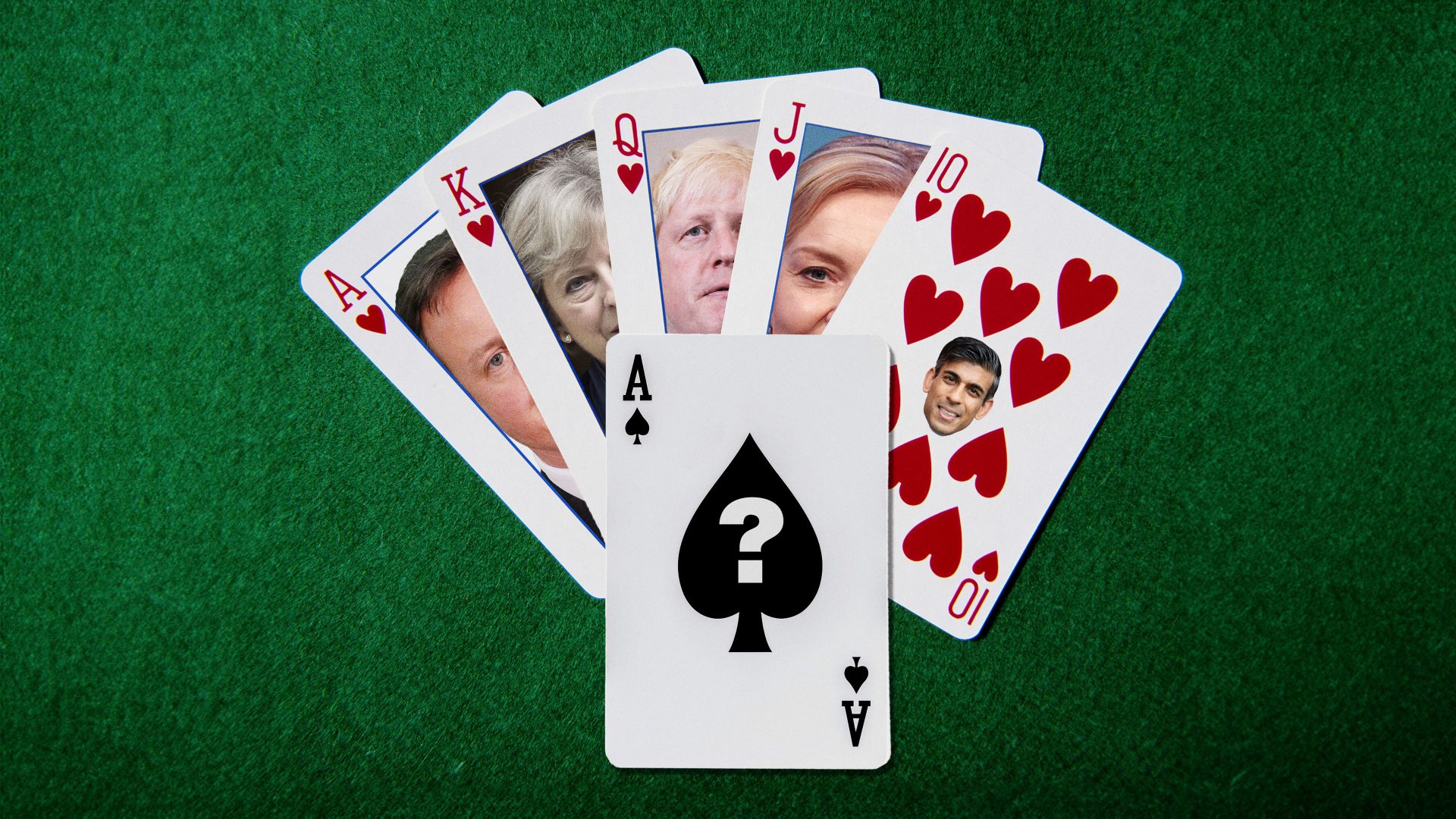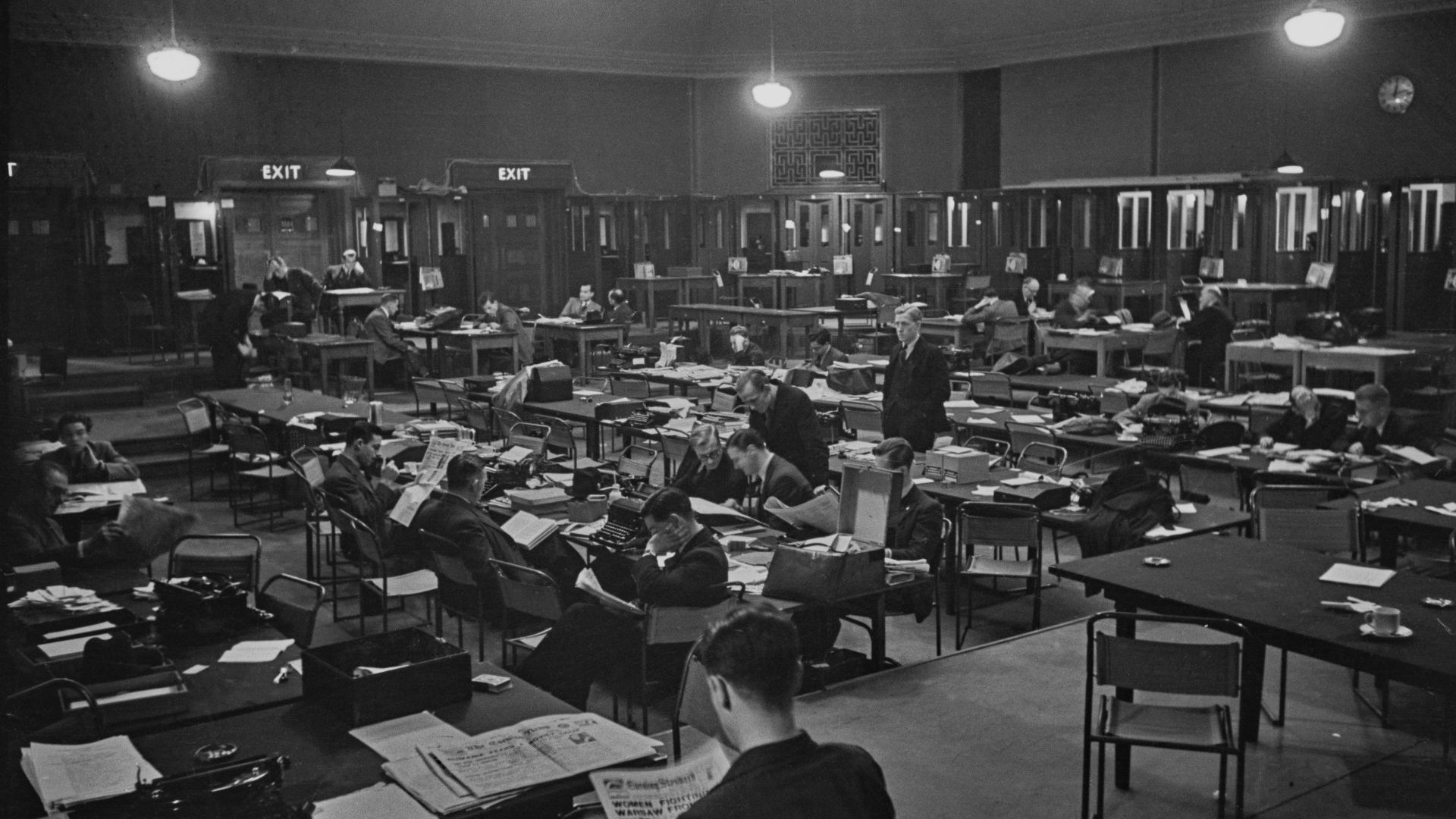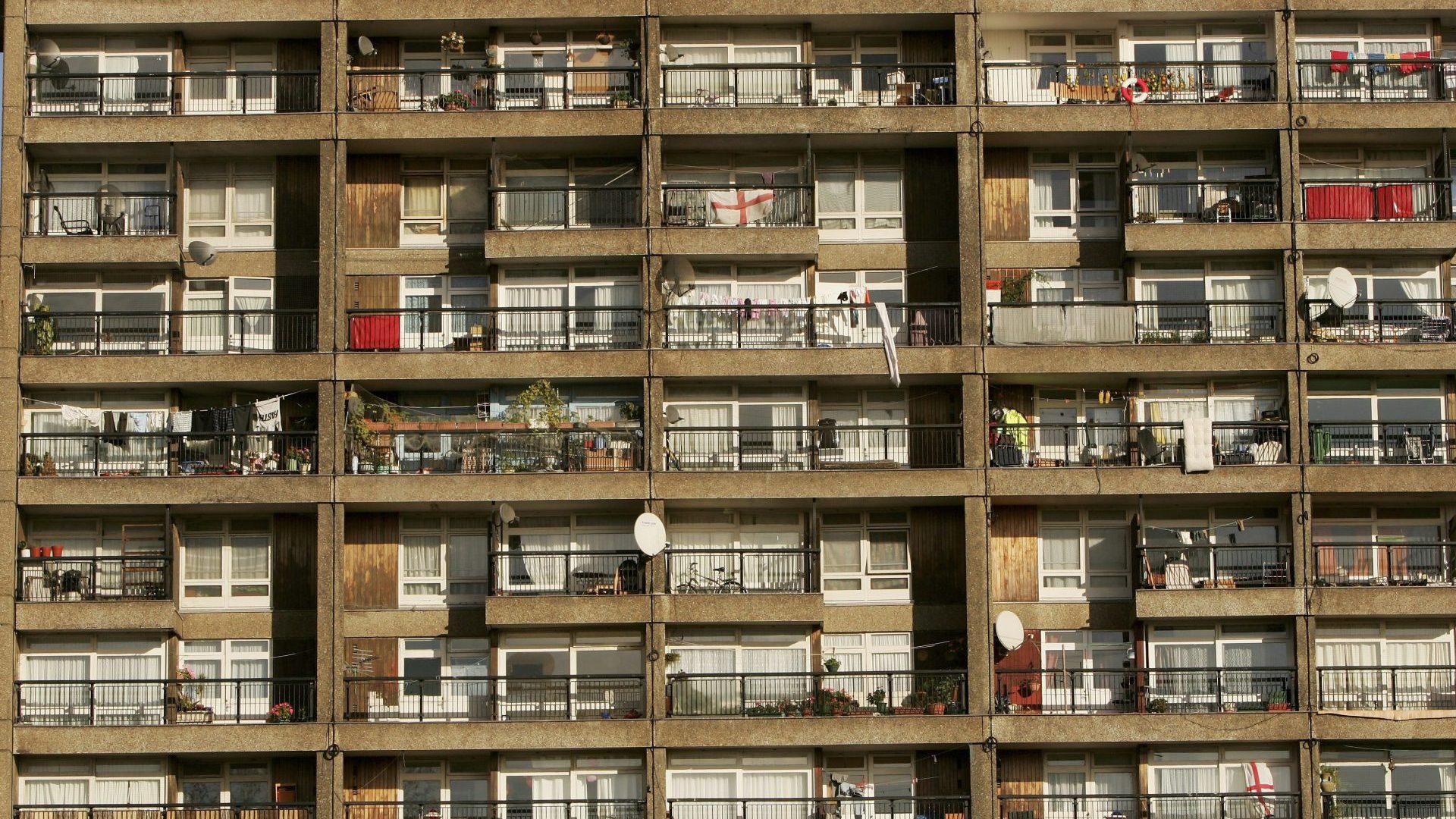What to do if you are a Conservative MP waking up each day to opinion polls suggesting your party faces electoral slaughter? That it might – as Easter weekend megapolls suggested – end up with less than 100 seats when the election is finally held, or around 150 if Reform were to stand down?
A large swathe of MPs has answered the question in the most simple way. They have announced they will not contest the next election, the most vivid barometer of a party in crisis. They have given up, anticipating a heavy defeat and a nightmarish battle after the election in which they wish to play no part.
Others spend a great deal of time neurotically wondering how to limit the scale of the eventual loss. They want to hold on to their seats and wish to play their part in the parliamentary party beyond the election. What levers do they have available to them?
Inevitably, in such a desperate and feverish atmosphere, some of them wonder whether their only hope is to move against Rishi Sunak and throw the dice one more time with another prime minister taking them into the election. As one influential Conservative put it to me: “If the choice is between death and madness, there’s a strong case for madness”.
This is an illuminating observation, showing an awareness that the toppling of another prime minister is deranged but is perhaps the only option available to a party breaking records for its level of unpopularity.
There are many compelling reasons for opting against madness. There is no titan waiting in the wings. The party is split and ill-disciplined. The toppling of another leader risks fuelling the divisions and the public civil war already being played out in front of our eyes.
Above all, the noisy insurrection would be a symptom of a disturbed party, the fourth prime minister since 2019 and another to reach No 10 without a general election.
I wrote an entire book based on the premise that prime ministers are almost impossible to dislodge. In The Prime Ministers We Never Had, I argued that the main reason that the likes of Denis Healey, Roy Jenkins, Michael Heseltine and others never made it to No. 10 was that prime ministers are always less vulnerable than they seem.
I cited the examples of Harold Wilson and John Major. The speculation that Wilson might fall began in 1968. He resigned voluntarily as prime minister in 1976. Major was seemingly vulnerable from September 1992, when the UK crashed out of the Exchange Rate Mechanism. Five years later he led the Tories into the next general election.
In addition, there have been several clumsy moves by panic-stricken MPs as an election moved into view. In January 2010, Labour MPs who loathed Gordon Brown sought to replace him with David Miliband, even though Brown was playing a masterly role in the aftermath of the 2008 financial crash. They neither removed Brown nor persuaded Miliband to make an attempt at regicide.
In the build-up to the 1983 election, albeit from opposition, some Labour MPs plotted to dump Michael Foot. Their half-hearted efforts fizzled out after Labour unexpectedly won the Darlington by-election months before the general election. In both cases, the insurrections highlighted internal turmoil without helping to address the march towards defeat.
But since 2016 the Conservative Party, once the model of ruthless discipline and loyalty to leaders, has become wild. All previous assumptions and orthodoxies about the wisdom of sticking with leaders have already been challenged beyond the point of absurdity. Brexit was the trigger and the underlying cause of the mayhem. David Cameron resigned after losing the Brexit referendum. Theresa May could not deliver Brexit. Boris Johnson could do so but only in a way that further jeopardised the UK’s fragile economy and its place in the world. Liz Truss sought growth in ways that achieved the reverse.
In the past eight years there have been a ridiculous number of Tory prime ministers. They were weaker than they seemed, falling in dramatic circumstances. Given that record, it would be wrong to assume that Sunak will necessarily survive.
For Tory MPs contemplating madness as a possible alternative to death there is a pivotal question they must answer first. How much is the party’s plight the responsibility of Sunak?
In order to get a reasonable answer, I suggest they turn to Shakespeare. One of my favourite themes when studying Shakespeare’s tragedies was “Character is Destiny: Discuss”. The theme is the best possible guide when seeking to make sense of politics.
Was Hamlet’s character the explanation for all that followed? What about the character of Macbeth? In both cases, their complex and endlessly fascinating characters played a big part. But the playwright is god and Shakespeare placed them in a context and circumstances that were also crucial factors in determining the tragic outcomes. Hamlet was paranoid but he had a lot to be paranoid about. In making a judgment on a prime minister we must consider character and context.
When Sunak became prime minister in 2022, that wackiest of years, his inheritance was daunting. Truss had propelled the economy towards the cliff edge. Johnson had departed chaotically and with questions around trust and basic competence raging around him.
Sunak was not elected by party members, let alone the wider electorate. His party was divided. But Sunak has made the situation worse when he had a brief opportunity to set his party in a new direction. His character as prime minister has darkened the daunting inheritance.
The art of leadership when becoming prime minister in challenging times is to personify change while keeping your party more or less on board. John Major did this brilliantly when he succeeded Margaret Thatcher in the autumn of 1990.
Major scrapped the loathed poll tax, a policy associated with Thatcher, spoke about being at the “heart of Europe” and showed a concern for the then rotten state of public services by selected increases in spending and hailing a “citizens’ charter”, a model that did not work but had a symbolic potency. As Neil Kinnock, the Labour leader at the time, has reflected since, “voters thought there had been a change of government”.
As far as Sunak has an identifiable strategy, it is the opposite of Major’s. From the beginning there was no attempt to symbolise change.
In a deal he felt he had to make in order to secure the leadership, he brought back Suella Braverman, a cabinet minister who had suffered the ignominy of being sacked by Liz Truss. He abstained as the Commons voted to back the verdict of the Standards Committee that Boris Johnson had misled parliament.
Conveying integrity is relatively straightforward compared to the other challenges of government. Feeling weaker than he was in the early days of his leadership, Sunak chose not to do so. Meanwhile, announcing the end of HS2 at his party’s conference in Manchester, the planned destination of the high-speed railway line, reflected a wider strategic ineptitude.
Sunak is also the latest prime minister who does not understand the country he leads. His ideological instincts will not let him do so.
Increasingly voters despair of dire public services, even worse than they were when Major succeeded Thatcher in 1990. But Sunak is a Thatcherite at a point when finally Thatcherism is no longer in fashion. He is only bothered about tax cuts and impossibly tight public spending settlements.
National Insurance has been cut twice. There are now strong hints that there will be further tax cuts before the election, just as voters wait for operations, try to catch a reliable train or drive on potholed roads. Meanwhile, councils go bust and levelling up remains a fantasy. Sunak’s ideology is as big a problem as his lack of political skills.
Sunak’s contribution to his plight should not be surprising. He had no preparation for the epic demands of leadership.
He was first elected as an MP less than a decade ago, in 2015. Then, in the space of a short time, he was a junior cabinet minister who suddenly became chancellor at the whim of Dominic Cummings in 2020.
The pandemic struck and Sunak was in place to deliver payments as part of a furlough scheme that was bound to make him a popular minister. A couple of years later he was prime minister.
Politics is a vocation and a skill. To become political takes time and experience. Sunak navigates the thorny terrain without the experience required for the ride.
But here is the twist. Tory MPs clamouring for a change of leader support the tax cuts and want more of them. As well as being attached to an outdated ideology, they also want increased spending on defence and other public services too, a version of the dishonest, incoherent “cakeist” manifesto of 2019. They have no more credible idea than Sunak of how to win.
Moreover, there is no alternative candidate who can wave a wand to make sense of the divisions and incoherent, contradictory objectives of a party out of control. The Conservative Party has not had a grown-up debate about its future since Margaret Thatcher challenged Edward Heath in 1975. There has been no equivalent of Labour’s introspective debates that led finally to their landslide victory in 1997.
Such debates can only happen in opposition. A change of leader will not lead to a mature Conservative Party in tune with changing times.
There is, though, a more immediate question for the coming few months. Can a different leader save a few seats? The question will be asked again after the May local elections if the Tories perform as badly as predicted. This happened when Tory MPs forced out Theresa May in 2019. A few months later they won a near landslide.
Probably a change of leader will not happen and if it were to do so it might make matters worse for them. But given that there have been three prime ministers since 2016, why not try a fourth?
Such a move would be shallow madness and would resolve none of the party’s fundamental problems. But general elections are presidential affairs. They currently have an inadequate leader that voters have turned against.
I can see the temptation and the leadership speculation will not subside until that election is called.
We are in the realms of madness.
Steve Richards presents the weekly podcast, Rock N Roll Politics. His latest book is Turning Points: Crisis and Change in Modern Britain, from 1945 to Truss.




